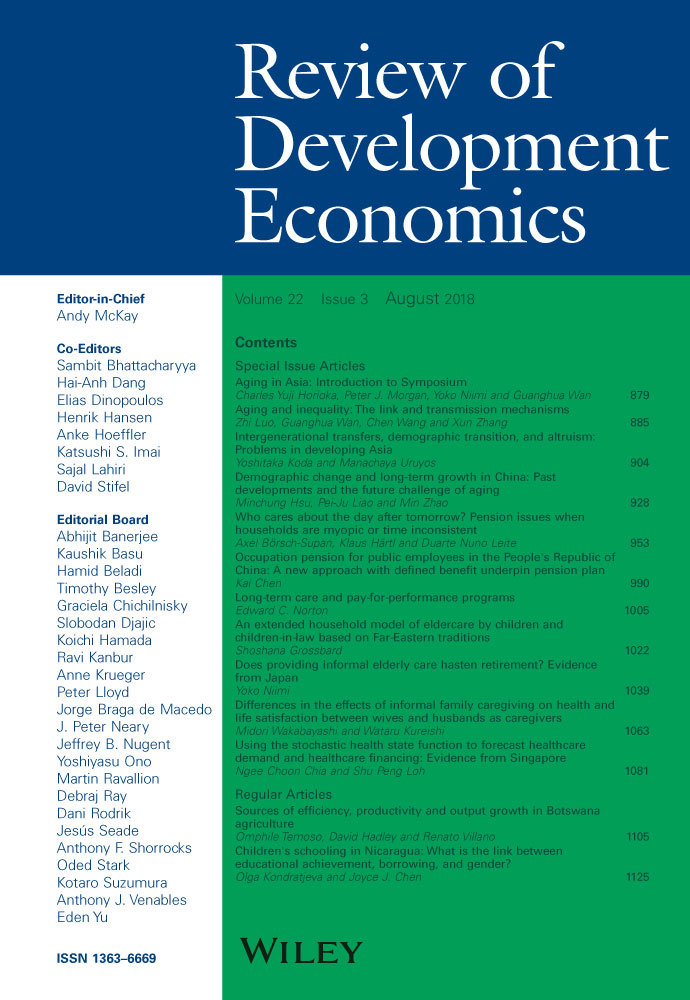Differences in the effects of informal family caregiving on health and life satisfaction between wives and husbands as caregivers
Abstract
We analyze whether or not informal family caregiving worsens caregivers’ health and life satisfaction among Japanese married middle-aged and elderly individuals from the Japanese Study of Aging and Retirement. Unlike previous studies, we distinguish between wives and husbands as caregivers and between one's own and one's spouse's parents as care recipients. We find women's depressive state is negatively associated with caregiving for spousal parents both in our instrumental variable estimations and fixed-effect panel analysis, and also find women's life satisfaction is negatively associated with caregiving for spousal parents in our fixed-effect panel analysis, though only marginally so. However, as our results are marginally significant, caregiving for either own or spousal parents does not seem to matter much for caregiver's health or life satisfaction. All that can be said for certain in our paper is that men's subjective health, depressive state, and life satisfaction are generally less sensitive to informal care, for both spousal and own parents, than that of women.




